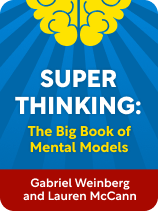

This article is an excerpt from the Shortform book guide to "Super Thinking: The Big Book of Mental Models" by Gabriel Weinberg and Lauren McCann. Shortform has the world's best summaries and analyses of books you should be reading.
Like this article? Sign up for a free trial here.
What is a cost-benefit analysis? How does the cost-benefit method compare to the pro-con method of decision-making?
Cost-benefit analysis is a decision-making strategy intended to weigh the costs of a decision or choice against its benefits. Unlike pro-con lists, a cost-benefit analysis lists the cumulative costs that a decision will incur alongside its cumulative benefits. It thus quantifies the consequences of your decision.
Here’s how to use cost-benefit analysis to analyze your decisions.
Cost-Benefit Analysis and Decision-Making
At a rudimentary level, a cost-benefit analysis weighs individual pros and cons on a scale of 10 to -10, summing these values to recommend a decision—if the total is positive, the decision is worthwhile, and if it’s negative, the cost is too high. For example:
Unlike the pro-con method of decision-making, the cost-benefit analysis yields a more conclusive verdict: You shouldn’t take the new position, since the cons outweigh the pros.
To further improve your analysis, Weinberg and McCann recommend assigning each cost and benefit an explicit monetary value. For instance, relocating to a new city might cost $10,000, whereas an extra week of paid leave might be worth $3,000.
(Shortform note: While assigning costs and benefits a monetary value can be helpful, remember that monetary value diminishes beyond a certain point. For example, if you currently make $40,000 a year, a $15,000 raise could tangibly improve your quality of life. However, if you’re currently making $250,000, it’s unlikely that a $15,000 raise would have the same impact. So, be sure to consider these diminishing returns alongside your cost-benefit analysis.)
| Does Deliberation Yield More Satisfying Decisions? The decision-making tools Weinberg and McCann discuss all assume that deliberation leads us to make better decisions. However, this assumption might be false; one recent set of studies showed that, even for complex decisions, people were generally more satisfied with decisions made without deliberation. For example, among customers shopping for complex products at IKEA, those who purchased products without deliberating were more satisfied than those who purchased products after deliberating. One possible explanation for these results is that customers who deliberate before making decisions have higher expectations, making them harder to satisfy. It’s possible that conscious deliberation still leads to better decisions, even if it doesn’t lead to more satisfying decisions. Consequently, this allows us to reconcile the studies’ results with Weinberg and McCann’s assumption that deliberation helps us make better decisions. |

———End of Preview———
Like what you just read? Read the rest of the world's best book summary and analysis of Gabriel Weinberg and Lauren McCann's "Super Thinking: The Big Book of Mental Models" at Shortform.
Here's what you'll find in our full Super Thinking: The Big Book of Mental Models summary:
- How to elevate your everyday reasoning and decision-making skills
- Why you shouldn't rely on intuition when making decisions
- How to deter you opposition from engaging in conflict






